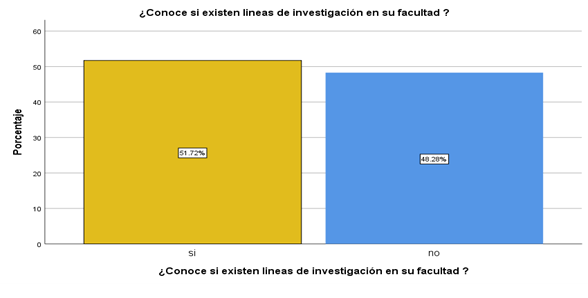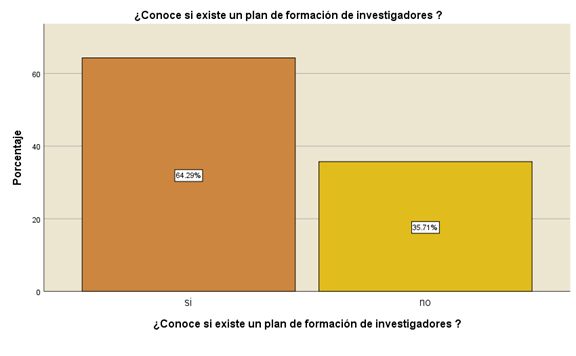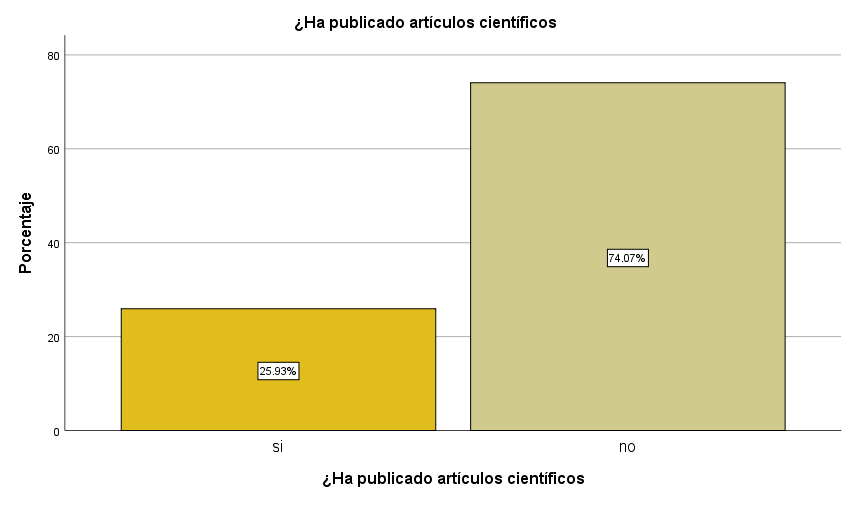
Mendive. Journal on Education, april-june 2022; 20(2): 348-354
Translated from the original in Spanish
Leading article
Factors that affect the scientific production of teachers at the Evangelical University of El Salvador
Factores que inciden en la producción científica de los docentes de la Universidad Evangélica de El Salvador
Fatores que afetam a produção científica de professores da Universidade Evangélica de El Salvador
Norma Estela Hernández Escobar1 ![]() https://orcid.org/0000-0002-6545-691X
https://orcid.org/0000-0002-6545-691X
1Evangelical University of El Salvador. El Salvador. ![]() norma.hernandez@uees.edu.sv
norma.hernandez@uees.edu.sv
Currently, the academic-scientific measurement of educational institutions, both regional and international, is established through the products and activities generated in the area of research, with significant contributions, and iis called scientific production.
To carry out these activities, Higher Education Institutions must have a solid base in terms of scientific production to become a fundamental support for teachers who carry out research.
In the so-called developed countries, the Universities play a preponderant role in the generation of new knowledge, which contributes directly to this development, which stimulates competition between said institutions according to the quality and relevance of the new knowledge produced as a result of their research activities.
In El Salvador, the government of the Republic, through the Ministry of Education, Science and Technology (MINEDUCYT), has generated lines of research to be carried out by Higher Education Institutions (IES) as a response to the call of the Organization of the United Nations for Education, Science and Culture (UNESCO) to the academic community in order to promote research to obtain useful knowledge as a factor of development.
In this sense, HEIs have incorporated research, along with teaching, social projection and scientific dissemination, as functions that "... respond to the university's commitment to be a knowledge-producing center that serves to respond to multiple problem-situations that are experienced in the country for the creation, application and transmission of new knowledge" (Dubs, 2005, p. 57; Escobar, 2007, p. 168).
The Evangelical University of El Salvador (UEES) incorporates and develops these scientific research processes in its institutional work, for which it implements research policies in 2004.
However, it should be considered that in order to promote and develop scientific research, HEIs require the training of researchers who generate solutions to scientifically formulated social problems, so that they are able to socialize novel and pertinent results that are of interest to the international scientific community, publishing them in articles, essays, books, theses, teaching material and participation in scientific congresses; as part of scientific dissemination, in the sense of the democratization of knowledge.
The European Union remains the world leader in the number of researchers, with a proportion of 22.2% of the number of researchers reported worldwide. For its part, since 2011, China reports 19.1%, surpassing the United States of America, which reflects only 16.7% (Unesco, 2018).
Among the initiatives to support the 17 objectives proposed by the SDGs in El Salvador, number four, "quality education", is considered a priority, because national Higher Education policies have been formulated with MINEDUCYT from this point; through consultations carried out "for five years with different social actors to learn about the main needs, visions and supports, with the fundamental objective of building a dynamic Higher Education System, based on multisectoral articulation and consistent with the vision of the country that promotes innovation, science, technology, quality and relevance to achieve academic excellence" (ONU, El Salvador, 2021, paragraph 2).
However, in the opinion of this author, research will become a pillar of university growth when research is guided by clear and defined objectives that stimulate the integrated participation of the State and the national productive sector, for which it is important that the University comply with the four research-oriented policies, so that they result in the production of relevant, quality research and, at the same time, form a group of professionals with the capacity and interest to integrate teaching and research; or even more, there are also full-time researchers within their cloisters.
In this sense, scientific research is the way to achieve knowledge, to understand, analyze and transform reality that contributes to guaranteeing the well-being of humanity. In this sense, Higher Education Institutions (IES) are committed to being part of this effort. Gómez (2009, p. 144) affirms that assuming the task of research requires the development of thought processes, skills and attitudes that lead to the exercise of a rigorous search on the natural and social processes of the environment.
The training of researchers occurs in postgraduate studies, it is a process that involves practices, resources and, above all, having well-established lines of research, aimed at developing capacities for the generation of new knowledge in the different fields of knowledge.
For Latin American countries, this model (Research) does not achieve a significant validity since, for the most part, the universities in this region concentrate their efforts on academic training. However, governments and the private sector have begun to demand increasingly active participation in this research function and awareness of the impact of the strategic value that knowledge represents has begun, point out Carvajal and Aarón (2020).
In this sense, Flores et al. (2019, p. 64) state that "... the research activities carried out within universities represent an indicator of scientific production, which should point to knowledge innovations, innovations of industrial application, generation of products or scientific and technological processes, in order to address problems and needs for social transformation".
With this statement, it can be inferred that the training of research teachers is necessary to be able to present proposals of innovative, creative and methodologically scientific quality, since the teacher is like a kind of "circulatory system" that runs through Higher Education Institutions ( IES) within the training process, technical -professional and specialists in different areas of knowledge that can promote research that links national, regional and multidisciplinary contexts with themes and needs from society.
In this sense, in order to know the perception and experiences of teachers in this area of research and the resulting products, supported through the application of these policies, the research "Factors that affect scientific production of the teachers of the Evangelical University of El Salvador in 2019".
The general objective was to identify the effect of the application of research policies on the scientific production of teachers at the Evangelical University of El Salvador in 2019.
Regarding the specific objectives:
a) Verify the application of scientific research policies at the Evangelical University of El Salvador.
b) Analyze the scientific production of teachers at the Evangelical University of El Salvador in 2019.
From this purpose, the experiences of the teachers on which the research in the UEES is based were investigated; In addition, how clear are the lines of research linked to those of MINIDUCYT with the Sustainable Development Goals (SDGs) and the relevance of the topics proposed in research. Likewise, it was inquired about the competences acquired by the faculty through the research training received and to know what the factors that allow the development, benefits or difficulties faced by teachers who investigate in the UEES are.
The units of analysis were full-time teachers and class hours who work in the six faculties of the different careers of the Evangelical University of El Salvador; research coordinators and teachers who have conducted research were interviewed; in addition, to a Research official from the Vice-Rector for Research and Social Projection (VRIPS).
The inclusion criteria were teachers who work at the UEES, teachers who have carried out research and an official responsible for the development of the VRIPS research.
A total population of 401 teachers between full time and class hours was considered and 196 were selected as a sample for the application of the survey, which make up 48.88%. The data was processed in the SPSS program.
The most relevant results were that:
According to data obtained from the teachers surveyed, 48% show total ignorance regarding the research guidelines defined by the UEES and 51.72% (figure 1).

Fig. 1- Knowledge of the specific lines of research that are worked on in the faculties
One of the strategies of the UEES has been to have a training plan in the area of research; however, only 64% of them stated that they knew about it, as shown in Figure 2.

Fig. 2- Knowledge of teachers about training plans for teachers who carry out research
One of the objectives of the research is to share the results with the scientific community and the publication of the article in an indexed journal, when consulting the UEES teachers if they have published any scientific article, only 25.93% answered yes (figure 3).

Fig. 3- Level of publications made by teachers
These three examples are considered sufficient to illustrate the difficulties faced by research and socialization of results in the UEES, despite the institutional strategy created to stimulate them. The causes of this situation are diverse, for example:
It is important to point out that the research policies of the UEES are linked to those established by the Ministry of Education, through its National Policy for Higher Education (PES, 2021), which works by areas of knowledge, in order to guarantee that all Higher-level educational institutions incorporate research activity as a fundamental part of the education and training of professionals in the country.
It should be noted that the teacher reflects and says that in countries as small as ours this is necessary, because research requires "high economic funds" and, in some sense, research must be done at the country or regional level, it is important create knowledge that is useful to society.
The data obtained from the UEES teachers reflect that there is a lack of knowledge about the subject of scientific research in general, and particularly in relation to open access to knowledge and the results of this process; however, it is not far from what iis happening in the region.
It further says that:
It is real that the demands of the academy in combining the functions of teaching and conducting research are becoming, every day more, a challenge for HEIs when working on the issue of time distribution to profile, from hiring, the teacher and their functions to perform.
But it is no less true that "The culture of research and publication seeks to promote and awaken the scientific spirit in all components of a society, in favor of the development of a country, demonstrating its high degree of commitment. However, the little or no culture of doing science limits the achievements mentioned above, a clear example are those countries that opted for research and consecrate themselves as development powers" (Guillén, 2020).
Other opinions associated with the subject have to do with: "which is one of the three functions that the teacher must develop"; "it is a tool to advice research work"; "Teachers should be the first to encourage research in students." Meanwhile, those who are not interested in research affirm that: "it is hard work and must be well paid"; "there is no balance between the time for education (teaching) and research"; "The processes are complex and support and time are needed to develop it"; "the processes are not totally clear, there is a lack of accompaniment", among others.
For his part, Gómez (2015, p. 7) explains that when an article is written "…new knowledge is acquired and updated as a result of reviewing the state of the art, contributing to the training of oneself and of the readers. Therefore, scientific publication is a valuable tool that facilitates continuity in education processes" (p. 8).
It is necessary to understand that "... the reason that justifies the need to investigate in universities is to forge human resources with new skills, aptitudes, competencies and knowledge, with adequate academic training in a world in an accelerated process of transformation, so that society requires human capital capable of solving its problems immediately; contributing to the growth and development of this human capital is one of the most important missions of universities" (Canjura et al. , 2017 ) .
It should also be said that the training of research professors guarantees, not only the commitment, motivation, perseverance, incentives, recognition and personal achievements of the researchers and the institution, but also that it is the path required to be able to develop and generate greater quality scientific production in universities and influence their students and society as a whole.
El Salvador needs HEIs to carry out and promote more research of quality and relevance for our society and generate greater scientific production and knowledge transfer, hence there is a general consensus about the importance of research within their academic functions, so the UEES must deepen this path from within, enthroning it in each faculty, chair or subject and, especially, for all its teachers.
Although there is no form of contracting that obliges teachers to investigate within their role, the adequacy of time and space for research has not been sufficiently considered in their work plans, this being one of the factors that most negatively affects the scientific production of the UEES.
On the other hand, the teacher-researcher concept should be considered in the teacher's hiring profile. Nor is the current incentive plan aimed at motivating teachers to carry out research, they consider it a heavy and poorly paid task, another negative impact factor for the development of research.
Regarding this, the contracts must be reviewed and it must be defined whether the teachers will have the profile of a researcher or a teacher- researcher and add in them that everything that is produced through research is the intellectual property of the UEES, always respecting the rights author's assets.
BIBLIOGRAPHIC REFERENCES
Canjura, Carlos Mauricio; Castaneda Monterrosa, Francisco Humberto; Handal Vega Erlinda. Resultados de la Información Estadística de Instituciones de Educación Superior 2017. http://utla.edu.sv/wp-content/uploads/2019/01/Resultados-de-la-Informacion-de-IES-2017.pdf
Carvajal-Tapia, Aarón Eduardo. (2020). "La cultura de investigar y publicar: una reflexión pedagógica". Revista Lasallista de Investigación, 17(2), 8-12. Publicación electrónica 19 de agosto de 2021. https://doi.org/10.22507/rli.vl7ii2e
Flores, E., Meléndez, J., & Mendoza, R. (2019). "Scientific production as a means for social transformation from universities". Revista Scientific, 4(14), 62-84, e-ISSN: 2542-2987. Recovered from: https://doi.org/10.29394/Scientific.issn.2542-2987.2019.4.14.3.62-8
Gómez Escoto, Rafael (2009). Una mirada a la producción científica de la Universidad de El Salvador en el quinquenio 2009. Universidad de El Salvador. http://ri.ues.edu.sv/id/eprint/15628/1/art_gomez-escoto.pdf
Gómez Escoto Rafael (2015). Importancia estratégica del desarrollo de la investigación científica en la Universidad de El Salvador. Núm. 26-27 (2015): La Universidad, Nueva Época, (26-27), Disponible en: https://revistas.ues.edu.sv/index.php/launiversidad/article/view/779
Guillén Henríquez, J. (2020). Los enfoques de la investigación a partir de la Teoría del Conocimiento. Ciencia, Cultura Y Sociedad, 6(1),62-72. https://doi.org/10.5377/ccs.v6i1.10537
Organización de las Naciones Unidas para la Educación, la ciencia y la Cultura UNESCO (2005). Declaración universal sobre Bioética y Derechos Humanos. UNESCO. http://portal.unesco.org/es/ev.php-URL_ID=31058&URL_DO=DO_TOPIC&URL_SECTION=201.html
Conflict of interest:
Author declares not to have any conflicts of interest.
Authors´ Contribution:
The author has participated in the writing of the work and analysis of the documents.
![]()
This work is under a licencia de Creative Commons Reconocimiento-NoComercial 4.0 Internacional
Copyright (c) Norma Estela Hernández Escobar